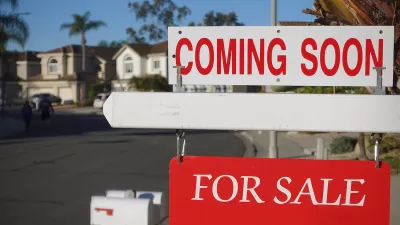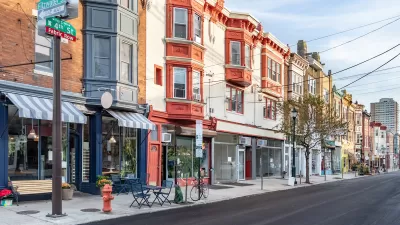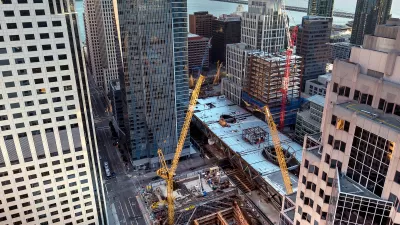The argument in the headline, put more specifically: inclusionary zoning, fees, legal challenges, and minimum apartment sizes are counter-productive. The only policy that will add housing stock, is to make it much cheaper to add housing stock.

Dan Bertolet chooses a side in an ongoing debate about the causes of the nation's housing crisis—specifically, the reasons why the cost of housing is so high in so many places around the country.
Few public policy issues can match urban housing politics for its incendiary combination of passion and misconception. To wit: the confounding idea that relaxing regulations and fees to decrease the cost of homebuilding won’t make homes more affordable.
So on one side, there is the familiar argument that land use regulations, fees, and red tape don't have much influence on the price of housing, because "developers charge as much as the 'market will bear' anyway. Any savings from streamlined regulations or reduced fees just yield more profit for the developer, not lower prices or rents."
According to Bertolet, that line of reasoning excuses counter-productive housing policy, and is often used to propose more costs for developers. Bertolet is choosing the other side of this debate: that red tape and fees add to the cost of housing, and that to add the level of housing stock necessary to lower the cost of housing, red tape and fees should be removed as mush as possible. Bertolet goes into a lot more detail to make his case, while discussing examples like inclusionary zoning and acknowledging that his opinion is not popular among urban planners.
FULL STORY: YES, RED TAPE AND FEES DO RAISE THE PRICE OF HOUSING

Maui's Vacation Rental Debate Turns Ugly
Verbal attacks, misinformation campaigns and fistfights plague a high-stakes debate to convert thousands of vacation rentals into long-term housing.

Planetizen Federal Action Tracker
A weekly monitor of how Trump’s orders and actions are impacting planners and planning in America.

In Urban Planning, AI Prompting Could be the New Design Thinking
Creativity has long been key to great urban design. What if we see AI as our new creative partner?

King County Supportive Housing Program Offers Hope for Unhoused Residents
The county is taking a ‘Housing First’ approach that prioritizes getting people into housing, then offering wraparound supportive services.

Researchers Use AI to Get Clearer Picture of US Housing
Analysts are using artificial intelligence to supercharge their research by allowing them to comb through data faster. Though these AI tools can be error prone, they save time and housing researchers are optimistic about the future.

Making Shared Micromobility More Inclusive
Cities and shared mobility system operators can do more to include people with disabilities in planning and operations, per a new report.
Urban Design for Planners 1: Software Tools
This six-course series explores essential urban design concepts using open source software and equips planners with the tools they need to participate fully in the urban design process.
Planning for Universal Design
Learn the tools for implementing Universal Design in planning regulations.
planning NEXT
Appalachian Highlands Housing Partners
Mpact (founded as Rail~Volution)
City of Camden Redevelopment Agency
City of Astoria
City of Portland
City of Laramie





























